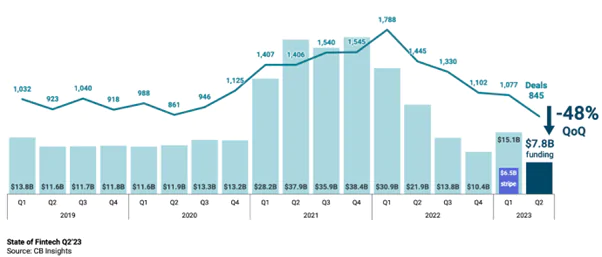The FinTech ecosystem has witnessed remarkable growth worldwide in recent years. FinTech ecosystem players have been driving innovation and disrupting the way traditional financial services were being offered. In 2022, the global FinTech market generated revenue of USD 133.84 billion and is projected to reach a value of USD 556.58 billion by the year 2030. As of May 2023, there were 11,651 FinTech startups in the Americas, 9,681 FinTech start-ups in the EMEA region and 5,061 in the Asia Pacific region.
The journey of setting up a fintech start-up is full of excitement, challenges, rewards, and risk of failure. Fintech used to be a buzz word however during last decade, several fintech start-ups has grown so fast to become a unicorn. Fintech become an integral part of financial services ecosystem. Financial Institutions has realized that the collaboration with fintech and offering platform as a service is the key to success.
The FinTech journey from the development of an innovative idea until its evolution towards a successful and sustainable institution and Unicorn, is filled with many challenges. Ensuring financial stability through appropriate funding per growth stage, dealing with rules and regulations or attracting capable leadership present a myriad of potential pitfalls that fintech need to manage to survive.
Funding to fintech emerged as a serious challenge during 2023. As per a report published by CB Insights, global fintech funding fell 48% to hit $7.8B in Q2’23 — the lowest level since 2017. The steep drop was due in part to Stripe’s $6.5B deal in March, which inflated funding for Q1’23. Without the Stripe deal in Q1’23, this quarter’s funding would have been down 9%. Fintech deal count also fell 22% to 845 in Q2’23. That decline was worse than the venture ecosystem, where deal count fell by 16%.
Fintech funding situation
To find right type of funding, a fintech must plan its business that should be in line with funding opportunities. Typically, VCs are not interested in investing at a very early stage. They want to see some validation first and, depending on the VC, some traction in sales as well. One advantage of talk to VCs at an early stage is that they can provide insights on where the FinTech’s focus should be. Another advantage is that it puts fintech on VCs’ radar. If there is a market fit, this can speed up the process of raising funding.
Key learning for a fintech to avail funding opportunities:
- Typically, it takes 6 months to complete a funding round. FinTech’s should be aware that, from an investor’s perspective, the emphasis in a funding round is on the (funding) mix or leverage (debt-equity ratio).
- Combination of funding solutions can help a scale-up succeed.
- To scale-up, it is also important for the fintech to develop a long-term financing strategy that is aligned to its growth path.
Develop a fallback scenario. Growth is often more expensive and lengthier than you expect. Source: EY Fintech Journey, CB Insights
Written by: Muhammad Rashid, Co-Founder & CEO






